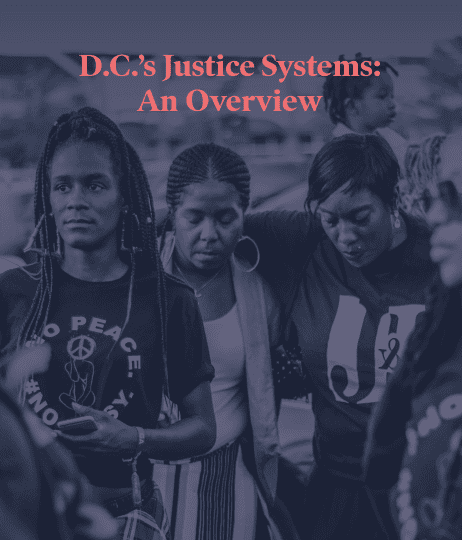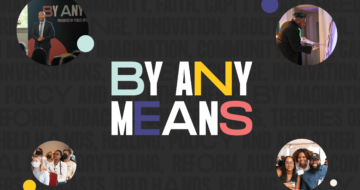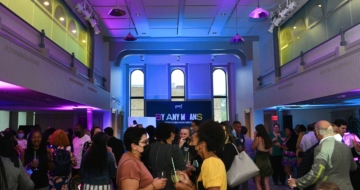This past January, Public Welfare Foundation announced that we would begin our new approach to transformative justice right here in our hometown of D.C.
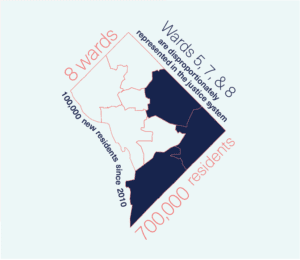 I was excited for what our new approach would mean for the city that I am proud to call home, but it didn’t take long for me to be confronted with an uncomfortable reality: as a transplant, I didn’t know much about what was happening in my city. I’d spent nearly six years working on federal policies centering boys and young men of color, yet had no idea how many black men were incarcerated in the place I called home and, consequently, how their lives and communities would be forever altered. That’s the funny thing about D.C. – so many people come here for opportunities with a national-reach and end up knowing little about local issues.
I was excited for what our new approach would mean for the city that I am proud to call home, but it didn’t take long for me to be confronted with an uncomfortable reality: as a transplant, I didn’t know much about what was happening in my city. I’d spent nearly six years working on federal policies centering boys and young men of color, yet had no idea how many black men were incarcerated in the place I called home and, consequently, how their lives and communities would be forever altered. That’s the funny thing about D.C. – so many people come here for opportunities with a national-reach and end up knowing little about local issues.
Public Welfare relied heavily on the people and resources around us to not only guide us but to lead us as we developed our strategy. We’ve learned that the landscape often looks very different for those who are indigenous to D.C. than for those of us who have relocated here.
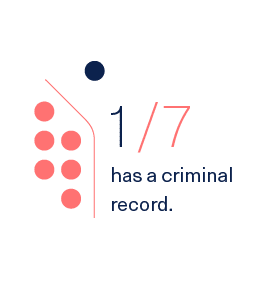
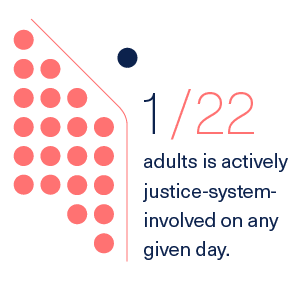
Why D.C.
D.C. has many governance and structural traits that make it unique nationally. It is these same traits that make it particularly challenging when it comes to the administration of justice. Yet the city is ripe for reform, offering policymakers with a willingness to test new solutions and proposed practices that could shift how the community responds to its young adults.
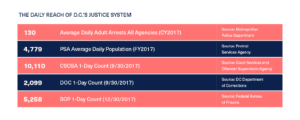
Justice & Disparities in The District
D.C. has long been a city divided, but that divide has grown more pronounced over the past two decades. Opportunities are not equitably distributed. According to one study, D.C. has the highest ‘intensity’ of gentrification of any U.S. city.
Over the last year, we’ve worked with local partners Council for Court Excellence and Georgetown Juvenile Justice Initiative to develop an overview of D.C.’s justice systems. The findings reiterate that D.C. is one of the heaviest policed cities in the country; racial disparities permeate every point of the system; and young adults make up the largest age group within D.C.’s jail. We have made the high-level findings of that work publicly available here.
Our Strategy
The Foundation hopes its D.C. strategy will help accelerate emerging ideas, organizations, and leaders all committed to shifting how the community and its systems respond to youth and young adults. These principles and priorities were directly shaped by the landscape analysis and community listening sessions led by the Foundation and its partners. More details about our D.C. strategy are available at https://www.publicwelfare.org/our-work/special-opportunities/getting-local-dc/. Public Welfare has invested approximately $1.8 million into local organizations in the last six months, and we hope to do even more.
Achieving a local vision of transformative justice is possible. D.C. has all of the ingredients, but it will take unprecedented collaboration. We look forward to doing our part to invest in local leaders who will usher in meaningful change for generations to come.
